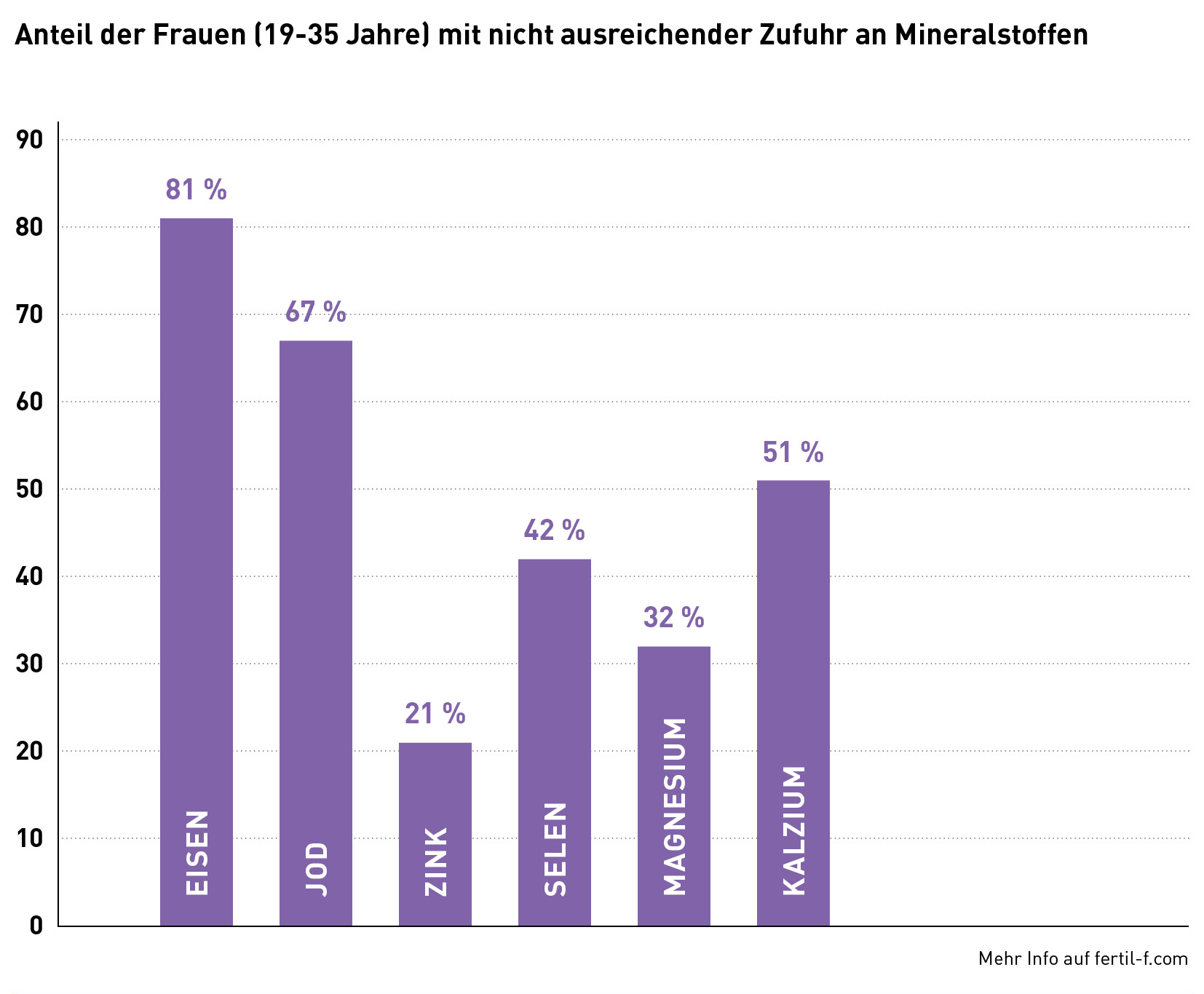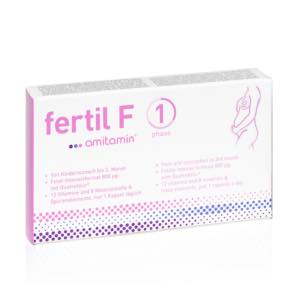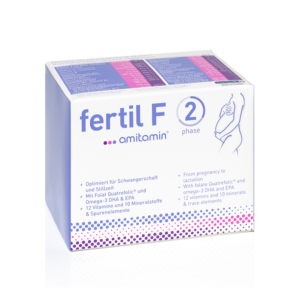Iodine is an essential trace element, of which our body needs around 150 µg to 200 µg daily.
Iodine is important for the nervous system and energy balance.
Iodine also contributes to normal mental functioning.
Iodine is particularly needed for the production of thyroid hormones and healthy thyroid function.
For children, iodine is important for normal growth.
Iodine deficiency is widespread
Iodine deficiency is widespread, both in Germany and the rest of Europe.
Even when using iodized table salt, around two thirds of the population still have an iodine deficiency according to the National Dietary Guidelines Part 2.
At the same time, the German Nutrition Society (DGE) recommends a higher iodine intake (260µg or 230µg daily), especially for pregnant women and breastfeeding mothers.
Iodine deficiency increases pregnancy risks
In addition to a significantly enlarged thyroid gland (goiter) in the newborn and the mother, iodine deficiency can lead to mental developmental disorders in the child.
Studies show that even mild and therefore often unrecognized forms of so-called hypothyroidism in pregnant women can reduce the intelligence of the children.
Even women with a healthy thyroid should therefore make sure they consume enough iodine before becoming pregnant.
Foods with a lot of iodine
To ensure you get enough iodine, you should make a conscious effort to eat foods containing iodine, mainly
- the daily consumption of milk and dairy products
- eating sea fish once or twice a week
- the use of iodized salt in the household
- the purchase of food produced with iodized salt
- the preferred consumption of foods with a high iodine content
- if necessary, taking an iodine supplement such as amitamin® fertil F.
| Iodine content | Food |
|---|---|
| approx. 135 µg per 100 g | Haddock |
| approx. 88 µg per 100 g | Saithe |
| approx. 50 µg per 100 g | Tuna |
| approx. 150 µg per 100 g | Mussels |
| approx. 229 µg per 100 g | Cod |
| between 20 (organic) and 200 µg/l (normal milk) | Milk |
| approx. 15 µg per 100 g | Broccoli |
| approx. 50 µg per 100 g | Bananas |
| approx. 13 µg per 100 g | Peanuts |
| approx. 12 µg per 100 g | Spinach |
| approx. 12 µg per 100 g | Pumpkin seeds |
| approx. 150 µg per 100 g | Mozzarella |
| approx. 35 µg per 100 g | Lamb’s lettuce |
| approx. 10 – 14 µg per 100 g | Cashew nuts, peanuts |
| approx. 6 µg per 100 g | Oat flakes |
| approx. 6 µg per 100 g | Wheat bread |
Food supplement with iodine for pregnancy and breastfeeding
amitamin® fertil F phase 1 and amitamin® fertil F phase 2 contain an amount of iodine optimized for pregnancy.
This allows the expectant mother and nursing mother to ensure that they consume sufficient iodine every day.
The iodine is embedded in a carefully selected combination of vitamins and minerals.
Ideal for the most important time in a woman’s life! amitamin® fertil F is available in German and Austrian pharmacies and can be ordered free of charge directly from amitamin.com.
This post is also available in: French German Italian Spanish Portuguese (Portugal) Dutch Swedish Arabic Turkish Bosnian

















